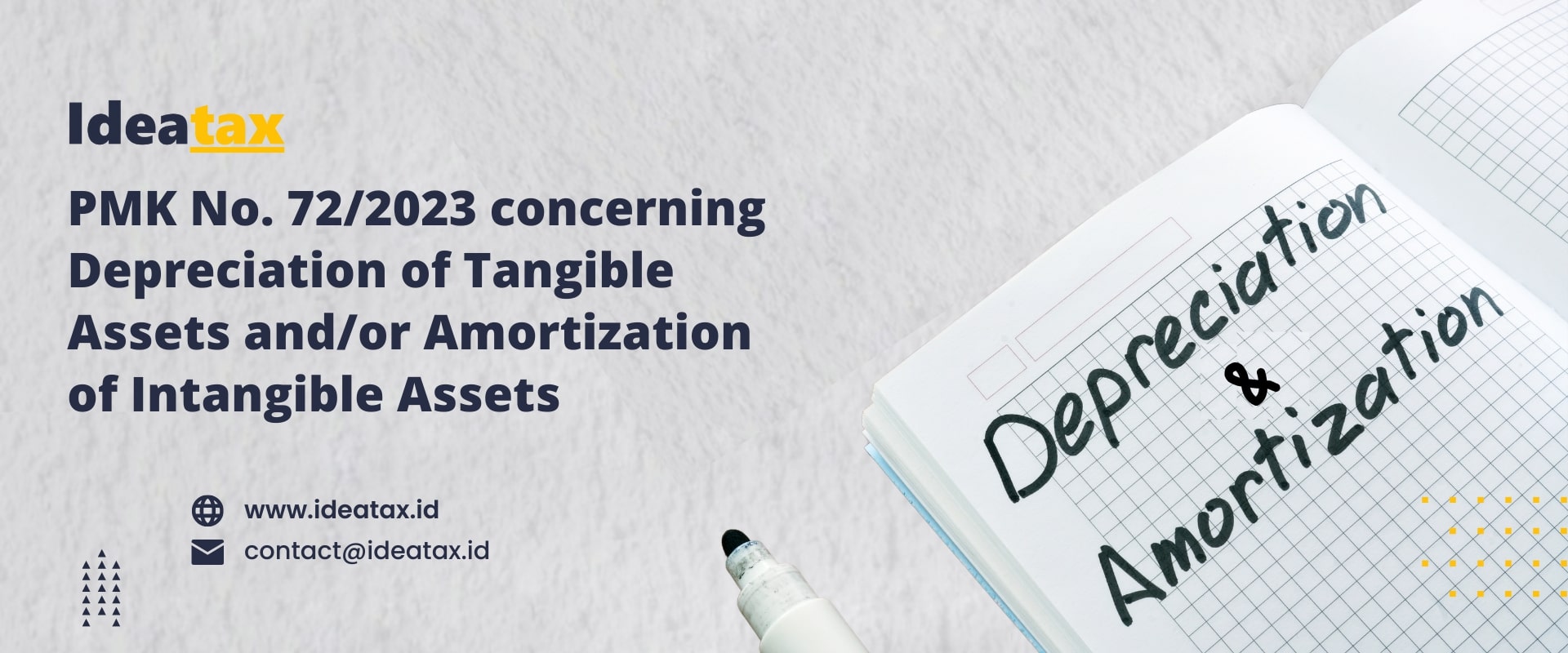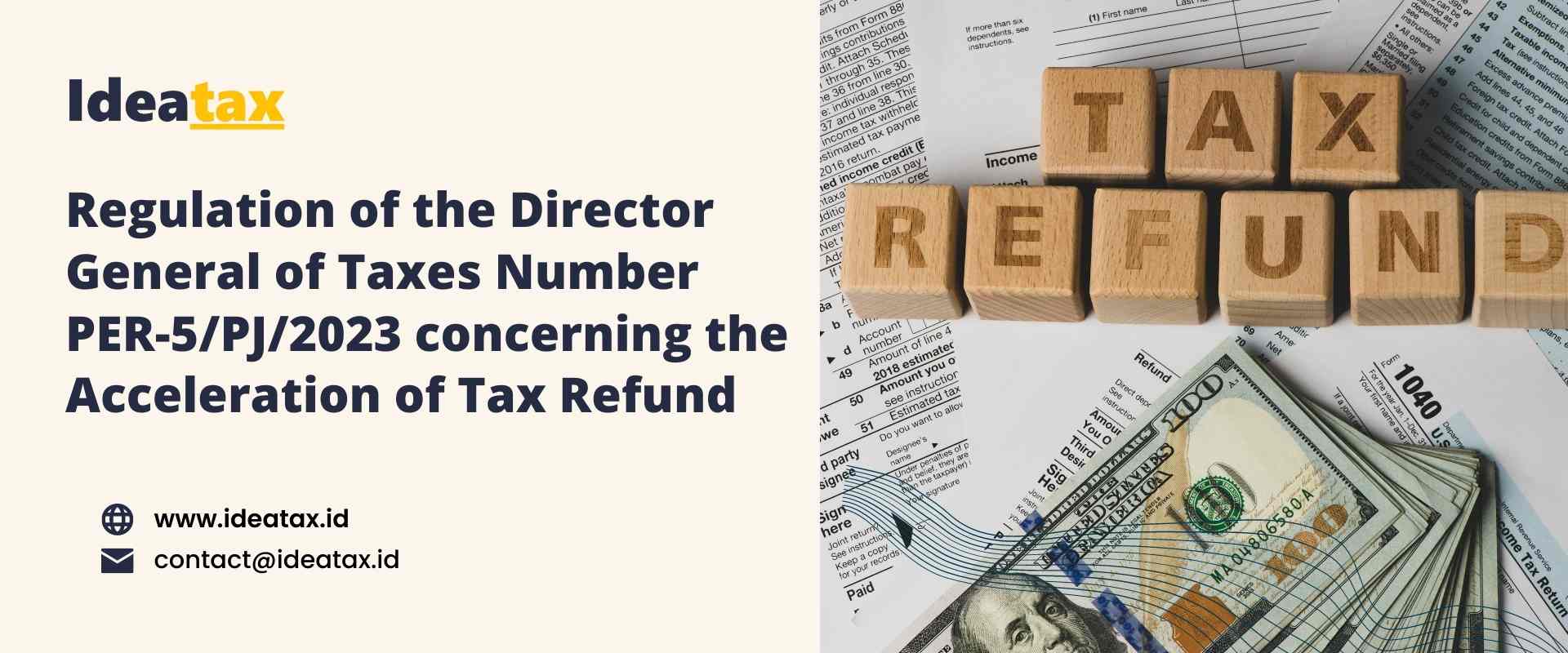Hello, is there anything we can help?

Government Regulation Number 55 of 2022 concerning Adjustment of Regulation in the Field of Income Tax
Ideatax, Jakarta -- As a derivative rule of the Income Tax Cluster in law of Harmonization of Tax Regulations, there are several new provisions are regulated in Government Regulation Number 55 of 2022. Among many is the exclusion of foreigners as domestic tax subjects who are subject to income tax as long as they have certain expertise in accordance with the provisions of laws and regulations and are valid for 4 (four) tax years counted since becoming a domestic tax subject.
In addition, this provision also regulates the exclusion of tax objects, including grants, assistance, or donations made to cooperatives and private people who run micro and small businesses.
Furthermore, this provision also provides further regulation regarding dividends that are excluded as tax objects, in the form of dividends of domestic or foreign origin; or other income in the form of after-tax income from a form of permanent business abroad and Income from abroad is not through a permanent form of business.
This regulation also regulates the exclusion of funds for the deposit of Hajj Fees and/ or Special Hajj Fees and income from the development of Hajj finances from income tax objects.
Interestingly, this provision also further regulates the tax on fringe benefit. Article 23 of Government Regulation number 55 of 2022 stipulates that reimbursement or compensation in the form of fringe benefits and/ or enjoyment is the object of Income Tax. In addition, this provision also provides that the cost of reimbursement or remuneration provided in the form of fringe benefits and/ or enjoyment in respect of work or services may be deducted from gross income to determine taxable income by the employer or the giver of compensation or reimbursement in the form of fringe benefits and/ or enjoyment to the extent that it is a cost to obtain, collect, and maintain income.
Nevertheless, this regulation provides for reimbursement or remuneration in the form of fringe benefits that is excluded from the object of income tax which are as follows:
-
food, groceries, beverage ingredients, and/ or beverages for all employees;
-
fringe benefits and/ or enjoyment provided in certain areas;
-
the benefits and/ or enjoyments that must be provided by the employer in the performance of the work;
-
fringe benefits and/ or enjoyment sourced or financed by the state budget, regional revenue and expenditure budget, and/ or village revenue and expenditure budget; or
-
fringe benefits and/ or enjoyment with certain types and/ or restrictions.
In addition to regulating tax subjects, tax objects as well as new types of taxes, this provision also regulates the mechanism for preventing tax avoidance which is:
-
determining the time of obtaining dividends and the basis for calculating them by domestic taxpayers for capital participation in overseas business entities other than business entities that sell their shares on the stock exchange;
-
re-determining the amount of income and deductions and determine debt as capital to calculate the amount of taxable income carried out by the Director General of Taxes by applying the Principles of Fairness and Normality of Business;
-
determining the party making the purchase of shares or assets of the company through another party or entity formed for such purpose to the extent that there is an impropriety in pricing;
-
establishing a party that carries out the sale or transfer of shares of the company between those established or domiciled in a country that provides tax protection;
-
re-determining the amount of income earned by a domestic individual taxpayer from an employer who transfers all or part of the income of the domestic individual taxpayer into the form of fees or other expenses paid to a company that is not established and not domiciled in Indonesia;
-
recalculating taxes that should be owed based on comparing financial performance with taxpayers in similar business activities to taxpayers who report operating profits that are too small compared to the financial performance of other taxpayers in similar business fields or report business losses unreasonably even though the taxpayer has been selling commercially for 5 (five) years and reporting fiscal losses for 3 (three) consecutive years;
-
setting limits on the amount of borrowing costs that can be charged for the purposes of calculating taxes; and/ or
-
recalculating the amount of tax that would otherwise be owed by not charging payments made by domestic taxpayers to foreign taxpayers as a cost that reduces income as a result of utilizing differences in tax treatment of an instrument or entity that can have more than one characteristic in the country or jurisdiction in which the taxpayer is domiciled.













